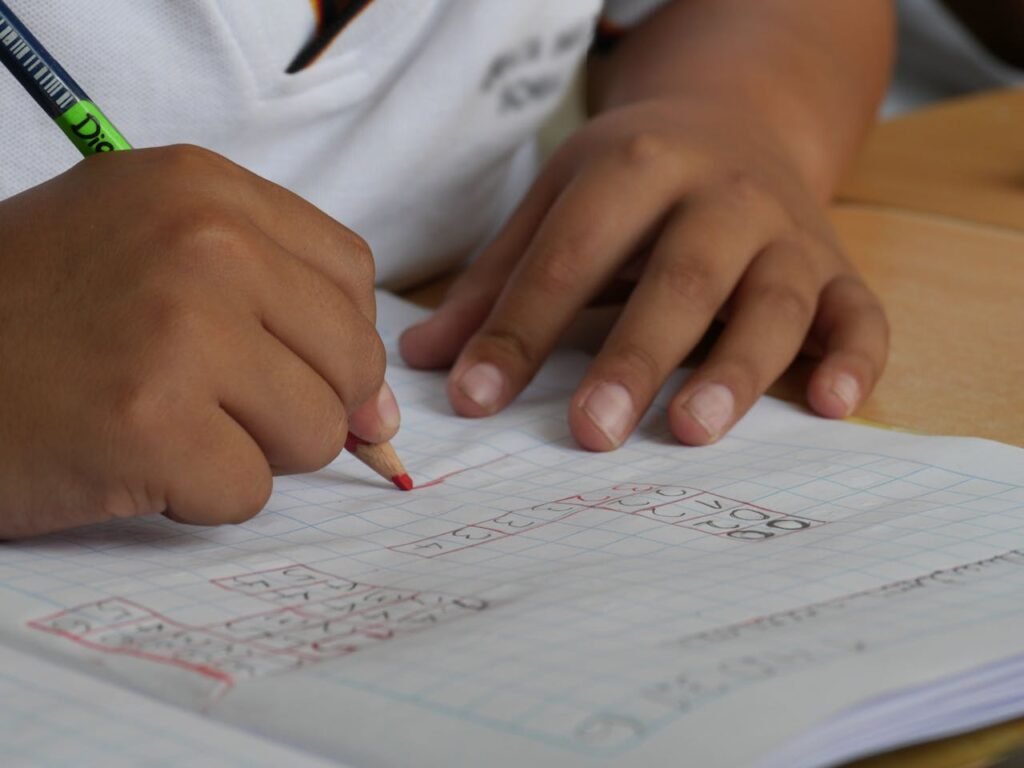7 Proven Techniques to Boost Memory Retention Fast

7 proven techniques to boost memory retention fast sounds unbelievable, right? I used to forget pretty much everything I studied until I found these 7 simple memory improvement tactics. Now? I can explain what I learned as if I was the one that wrote the textbook!
If you’re a student that struggles with forgetfulness, a professional preparing for a high-stakes exam, or you’re simply tired of reading the same page ten times, this post is your wake-up call.
You are not alone. We have all had that disappointing experience of having our minds race blank during an exam or forgetting important information, when it was most needed.
But memory has nothing to do with being “naturally smart”. Memory has to do with using the right techniques.
Stay tuned because you’re going to learn usable memory techniques that I used to succeed in high school and still use to this day as a university student. I went from not being able to recall what I studied, to mastering it using these techniques.
Let’s get rolling.
1. 7 Proven Techniques to Boost Memory Retention Fast: Teach Someone Else What You Just Learned
Teaching is one of the best memory strategies there is. Why? Because teaching forces: rephrasing, explaining, and simplifying information, which strengthens understanding & memory.
When I was in high school, I’d pull together my classmates and explain difficult concepts. Sometimes, I pretended to teach a class by myself in my room. Sounds crazy, I know, and I relentlessly did it, but it worked like a charm.
I still do this in university. After I read a chapter, I immediately try to teach it to myself (or a study partner) out loud.
Tip for Fast Memory Learning:
- Study a concept.
- Close your book.
- Teach it back in your own words.
If you can’t explain it simply, you didn’t learn it deeply.
2. 7 Proven Strategies to Boost Memory Retention Quickly: Frequently Test Yourself

Don’t simply reread, test yourself.This is called active recall, which is one of the most validated memory techniques in science.
Most students read their notes passively, thinking they have mastered the material. The true test is whether you can recall the information without looking.
Here’s what I do:
- After I review, I cover up my notes, and try to write down everything I can recall on a blank page.
- I quiz myself using flashcards or programs like Anki.
- I take practice exams, even when I feel underprepared.
It’s uncomfortable at first, but, over time, your brain, just like a muscle, gets stronger.
The more you test, the easier it is to recall.
This method makes recall feel like a muscle. Check out more proven study techniques to excel with active learning strategies.
3. 7 Proven Strategies to Boost Memory Retention Quickly: Create Meaningful Associations
Have you ever noticed that you can recall song lyrics and childhood memories with great ease? That’s because those memories contained meaning, a story, or a picture.
Memory loves meaning.
To learn new information more quickly, find a connection with something you already understand.
Create a funny or emotional story.
Create acronyms or select other reminders (for instance, use “HOMES” for the Great Lakes).
For example, when I was studying a biology unit we were studying cells. To remember the unit, I thought of cells as little cities filled with security guards (membranes), post offices (Golgi bodies), and power plants (mitochondria).
The more strange or graphic the association was, the better!
4. Use Visual Cues to lock in information
Your brain sees pictures 60,000 times faster than words.
So stop only using words , get your notes into visuals!
Here’s how:
- Make mind maps for your chapters
- Use diagrams, color-coded, and charts.
- Change bullet pointed text into infographics.
- Draw doodles next to keywords. Want to remember everything you read? This guide explores how visual note-taking supercharges recall.
When I learnt history, I used timelines with colors and symbols. That visual cue made recall significantly easier.
Tip:
Don’t just view visuals , create your own. Creating your own version keeps your brain further engaged.
5. Practice Regularly and with a Purpose
Memory comes from intentional repetition, not cramming.
This is why actors rehearse lines, musicians repeat scales, and public speakers rehearse speeches.
You should do the same for your studies.
Here’s what I did:
- I review the contentI review the content that I studied one day later, 3 days later, and 7 days later (spaced repetition). Research supports this: a 2024 meta‑analysis of spaced retrieval practice in STEM courses shows that spacing quizzes over time dramatically boosts memory retention .
- I keep summary notes that I review weekly.
- I repeat key facts out loud and eventually say them immediately after they are presented back to me.
Instead of cramming the night before, I review in small doses, after I previously studied, which is much nicer and way less pathetic.
6. Sleep Well, Your Brain Needs It
Here’s a truth bomb:
If you’re not sleeping well, you’re wasting your study time.
When you sleep your brain is consolidating everything you learned.
This includes organizing, storing, and building your memory.
Sleep cuts memory.
When I was in school, when exam season came around, I thought getting 4 hours of sleep was super “hustle mode”.
The truth was , I was far too tired to study well, I forgot everything, and I was frustrated in every way.
Once I focused on getting 7-8 hours of sleep each night, my recall improved dramatically.
Quick tip:
- Stop studying 1 hour before bed
- No screens, journal, or meditate instead
- Try your best to stick to the same sleep and wake times
And your brain will thank you.
7. Don’t Keep Studying in the Same Place, and Don’t Keep Studying the Same Way

Do you get bored reading the same thing, at the same desk?
This is called contextual fatigue, because your brain turns off; your brain becomes lazy (or at least comfortable).
What can we do? Change it up.
How I have done :
- Changed location (study at the library, coffee shop, outside)
- Changed method (podcasts, youtube, textbooks, flashcards)
- Mixed the subject up/rotate subjects
This method is simply interleaved learning, and it is proven that variating your techniques makes memory more durable and flexible in some ways.
By doing this, you can surprise your brain and keep it guessing and not just allow it to slip into memory – where it will be sharper.
Bonus:
Here is my real secret; I rarely used just one approach.
For example, if I read a chapter, I used to:
- Teach it to myself
- Then test (with flashcards – to muster the recall)
- Then rehearsal every few days
- And finally, I associated those ideas with a story or image
That is a powerhouse combination.
Those forms of study allowed me to be at the top of my class in high school, and still serves as my style as a university student.
If I can do it, so can you.
Conclusion:
Memory is not a gift ,it is a skill.
And like any skill, it can be improved with the right techniques and by practicing what you learnt.
Let’s quickly recap the 7 evidence-based techniques to help you quickly increase memory retention.
1. Teach what you learn
2. Test yourself frequently
3. Use strong associations
4. Use images and mind maps
5. Rehearse using spaced repetition
6. Sleep enough
7. Change your study place and ways of studying
Action step:
Pick 2 or 3 of these techniques and try them today. Even one small change in your study routine can lead to huge changes.
Here is a question for you:
Of these 7 techniques, which one are you going to try first and why.
Leave your thoughts in the comments below , I would love to hear your story.
P.S. If you found this helpful, share it with a friend who is struggling to remember what they study. You might just help change their life.




One Comment on “7 Proven Techniques to Boost Memory Retention Fast”